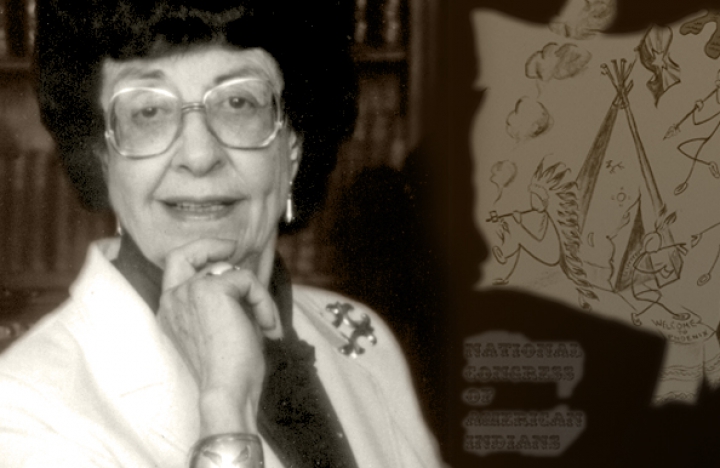Helen White Peterson
Inductee Name
Helen White Peterson
Place of Birth
South Dakota
Date of Birth
1915 – 2000
Year Inducted
1986
Category
Activism & Advocacy
Sponsor
Integrated Media
Impact
Nationwide
After Helen graduated from Hay Springs High School in Nebraska, she attended classes at Chadron State Teacher’s College to earn a business education degree. She married and worked to pay her tuition and helped her husband through graduate school. At first, low-level jobs such as babysitting and theater cashier. In college, she gave piano lessons while working as a student assistant. She worked as a clerk/stenographer for the U.S. Land Use Resettlement Administration.
Helen was pregnant when her husband entered the military during WWII. They divorced and she raised their son, Max with her mother’s help. The two women and the boy moved to Denver in 1942 where Helen accepted a position as executive director of the Rocky Mountain Council of Inter-American Affairs at the University of Denver.
Surprisingly, her career in minority relations began with Hispanics, After the war, a national Mexican American labor program imported sugar beets and farm workers into Colorado, which caused conflict with the existing Hispanics who were already settled there.
In 1948, the mayor’s office brought in Helen Peterson to be involved with the Chicano Rights Movement. She went door to door to double the amount of existing voters in the minority community. Peterson’s work produced a climate in which minorities started running for political office. She helped the Mayor recruit minority employees. Many stayed on the job until retirement. A result of this was that Denver passed on of the nation’s first fair housing laws. Peterson’s office developed cultural programs, lectures and concert series and visits with civic leaders. She became director of Denver’s Commission on Community relations. During this period, she was invited to attend the Second Inter-American Indian Conference in Peru as an adviser to the U.S. delegation.
Helen was the first Native American woman director of the National Congress of American Indians. She returned to Denver in 1962 as executive director of the city’s Commission on Community Relations and served again in Washington as assistant to the Commissioner of Indian Affairs. Her life was devoted to promoting equal rights, encouraging voter registration and political involvement for minorities, and the successful transition of Native Americans from their reservations. Flathead Indian scholar D’Arcy McNickle joined with Peterson to develop and promote summer education for Native American students at Colorado College from 1956 through 1970. Their workshops became a model for all ethnic studies programs in the United States.
Helen Peterson always saw herself as a community organizer getting people to work together to end racial discrimination.
Excerpts from “Women of Consequence” By Jeanne Varnell


